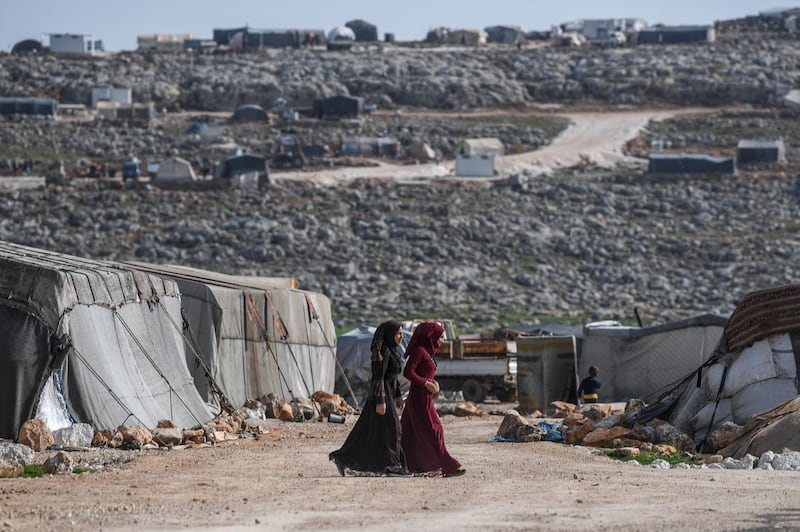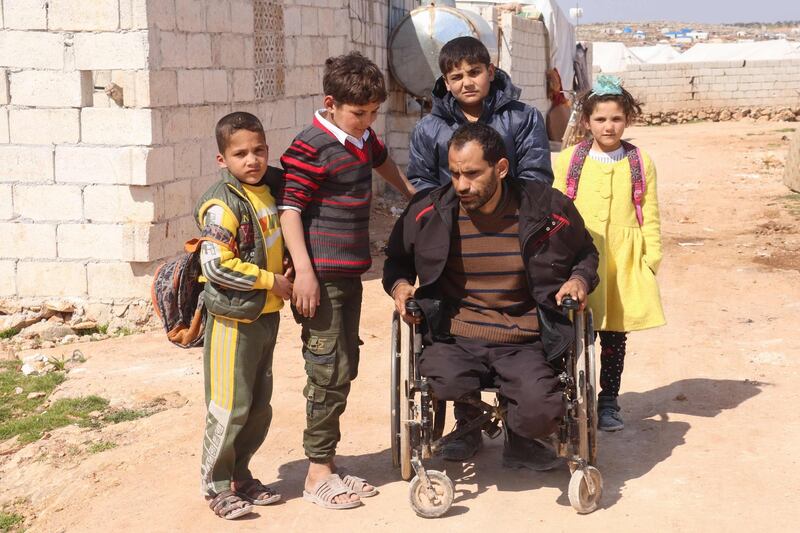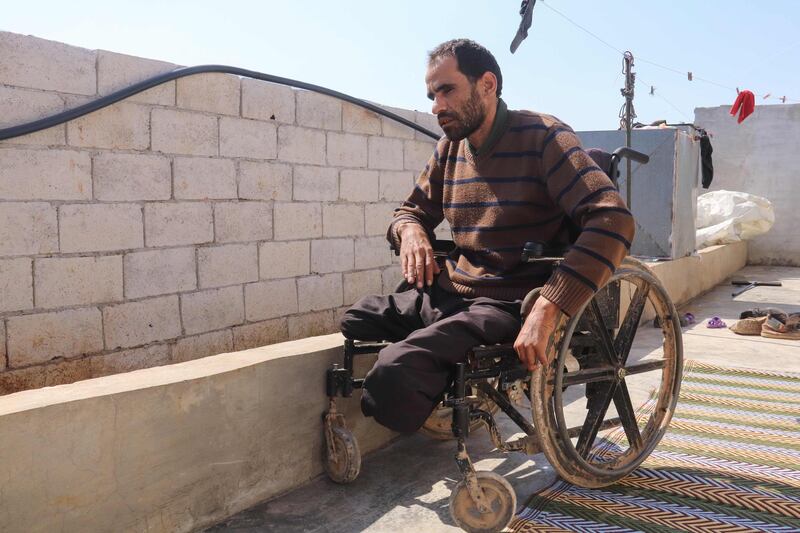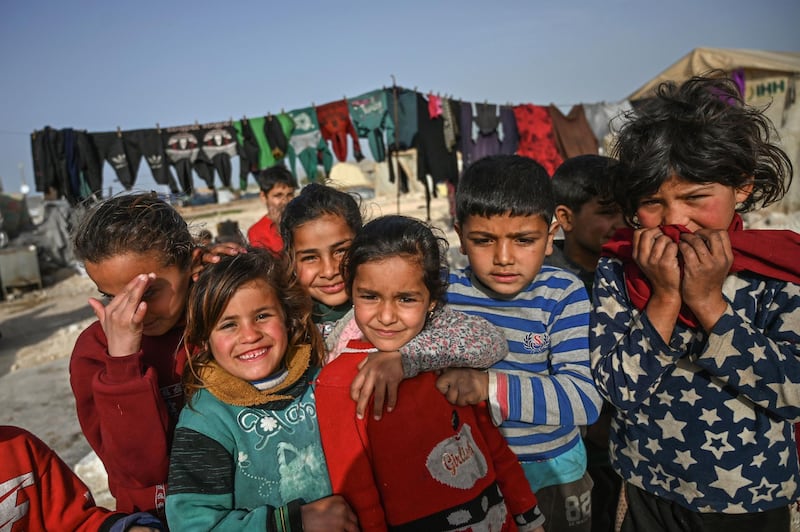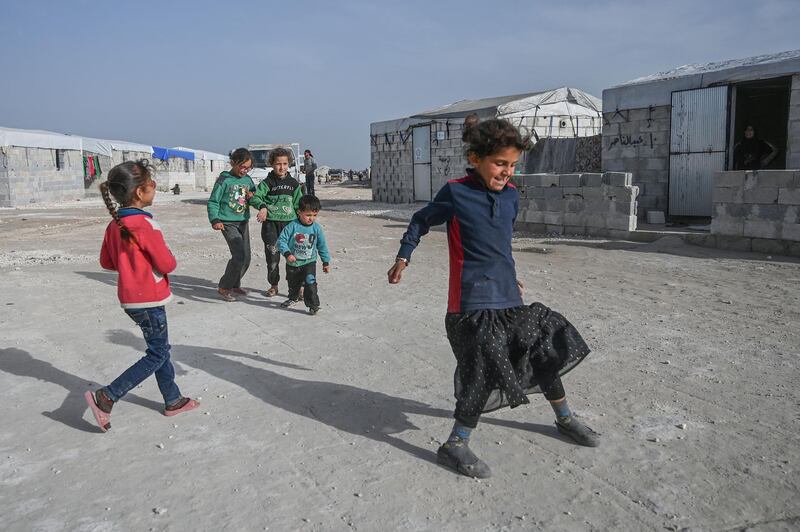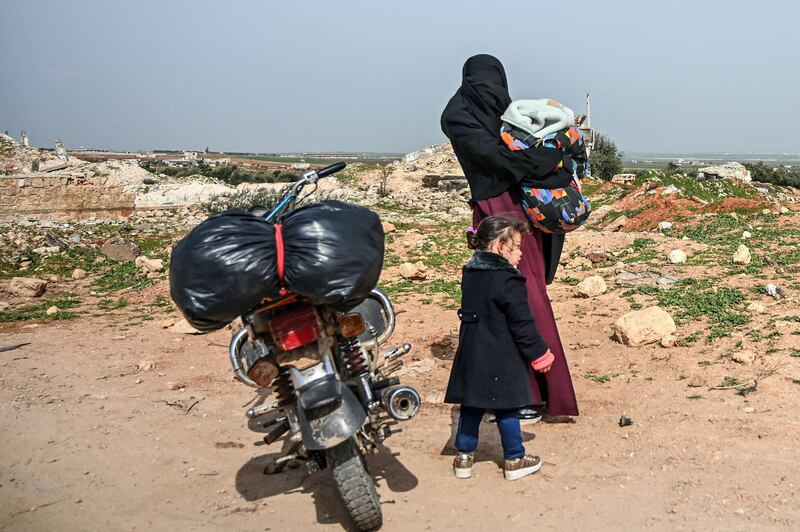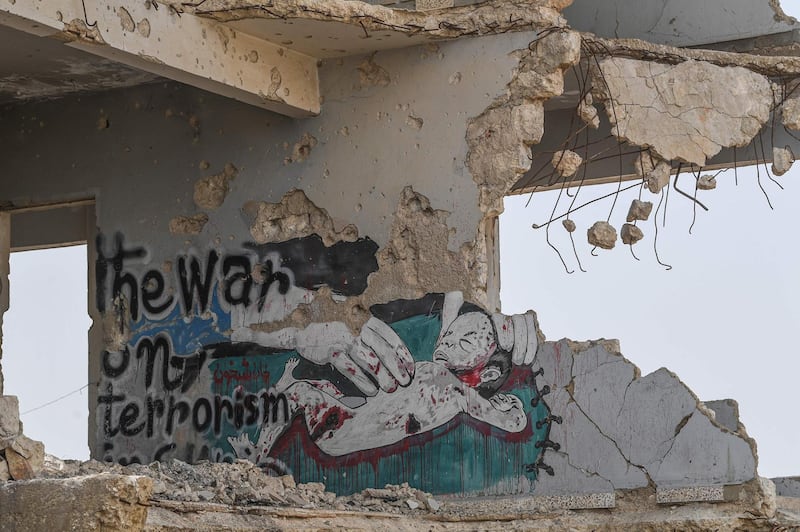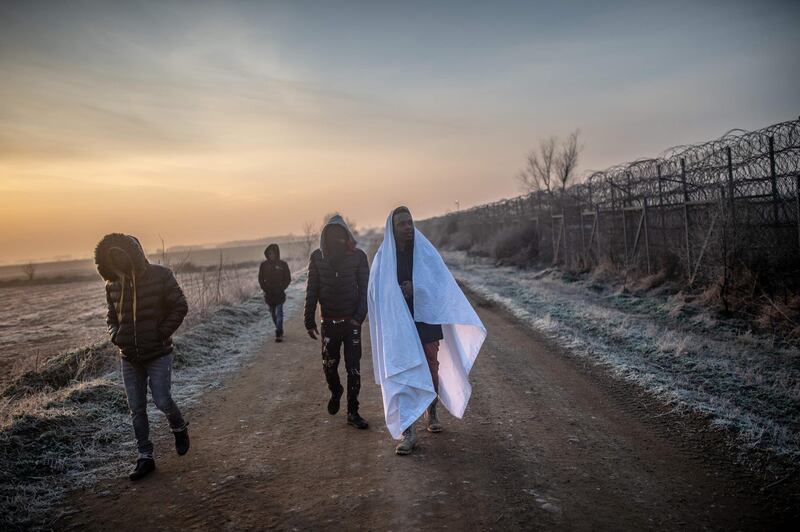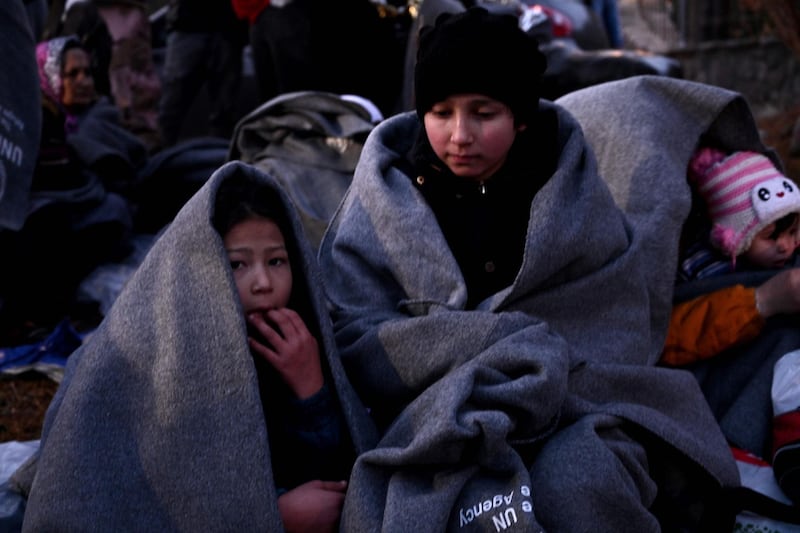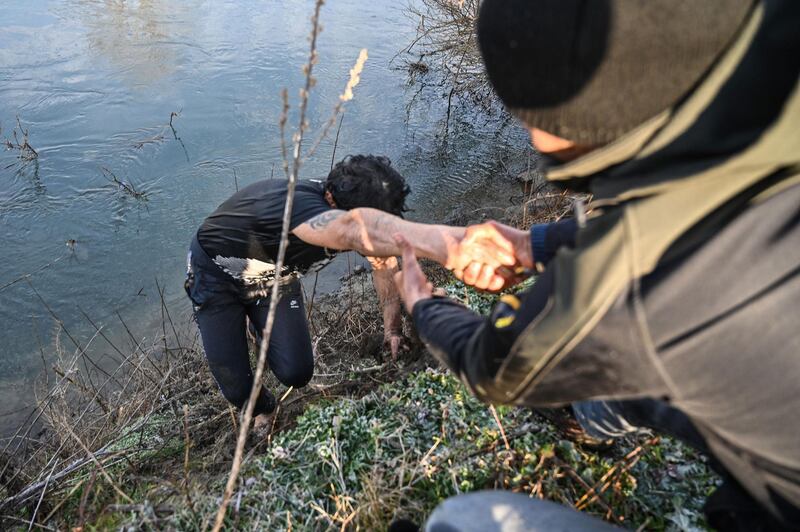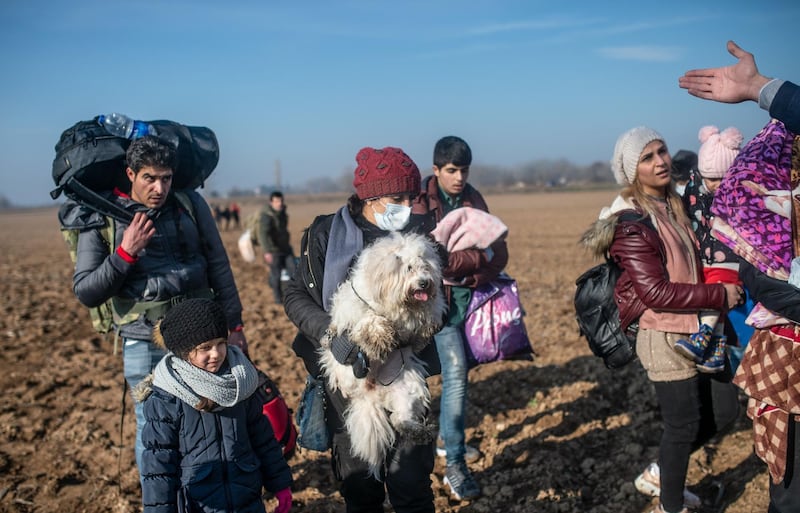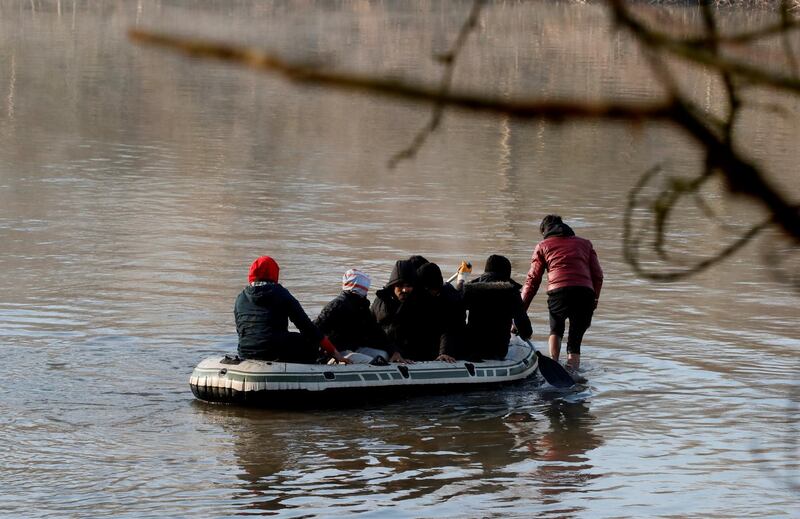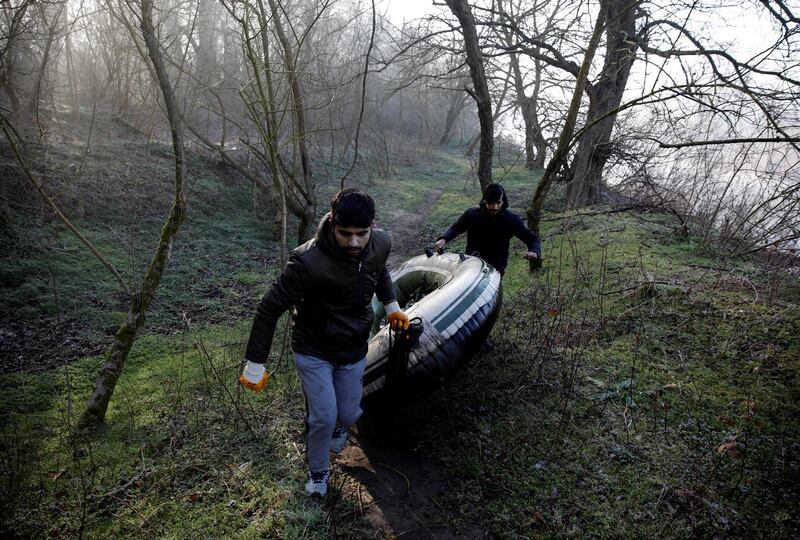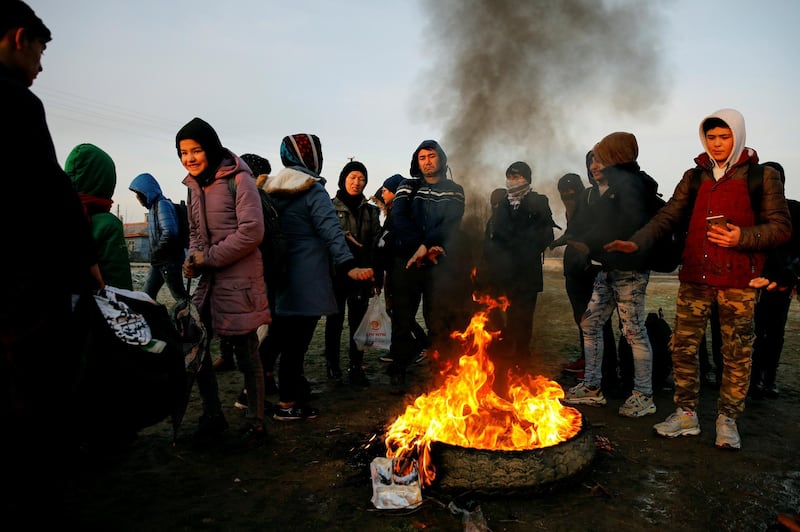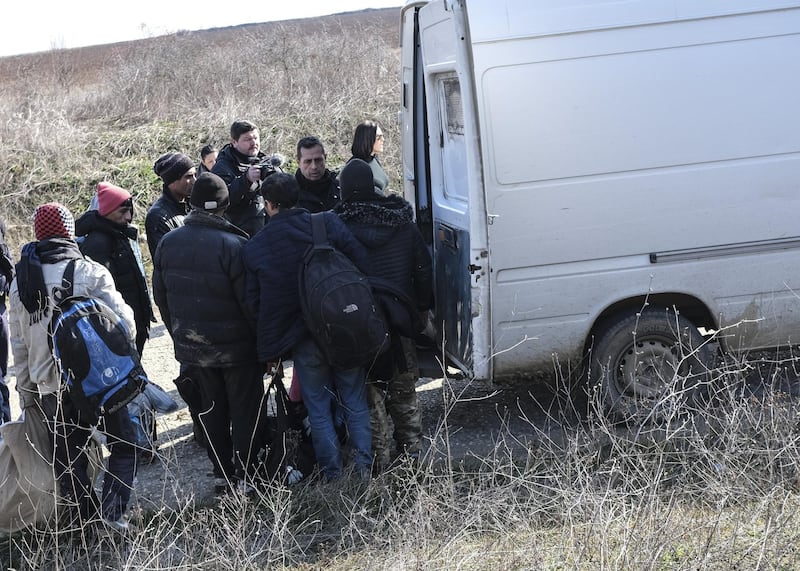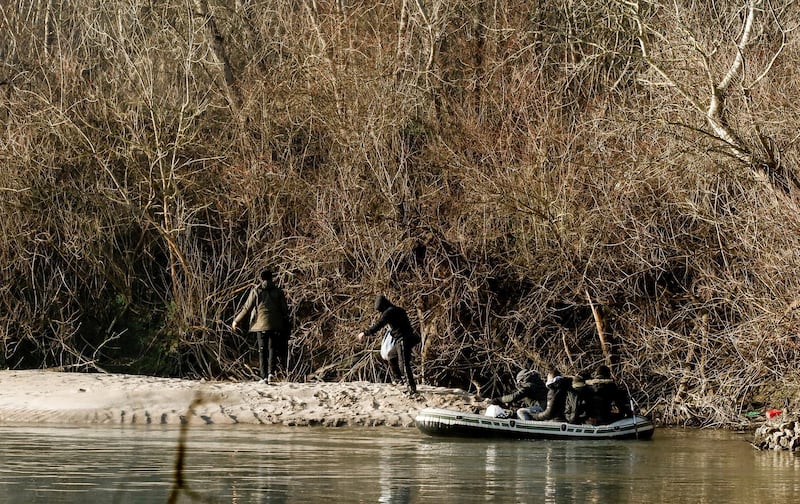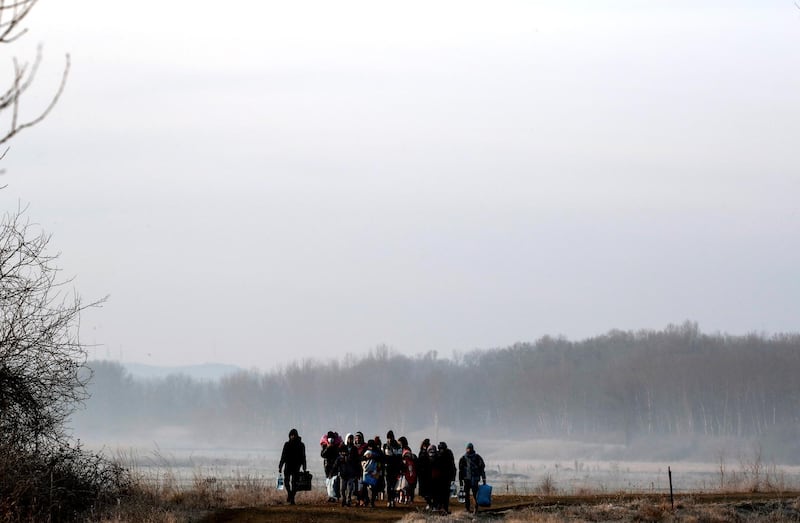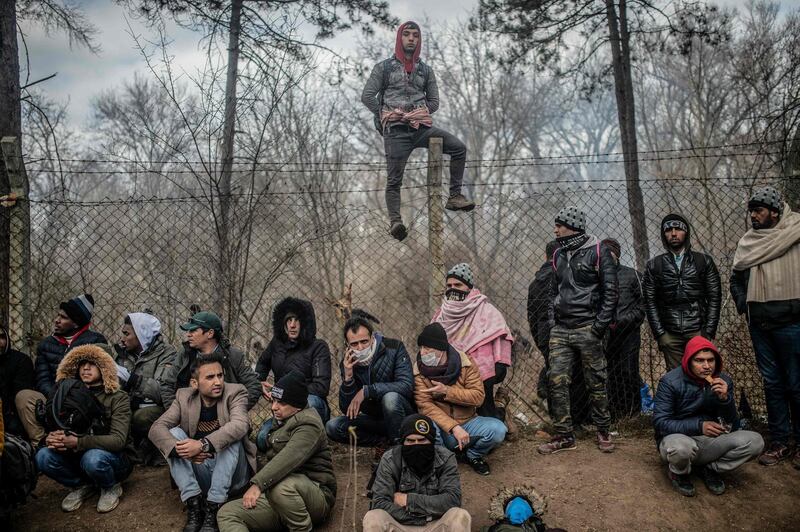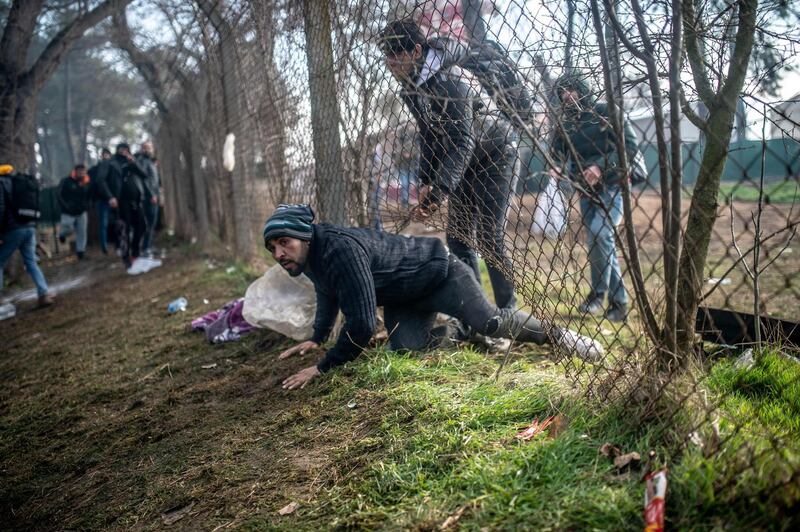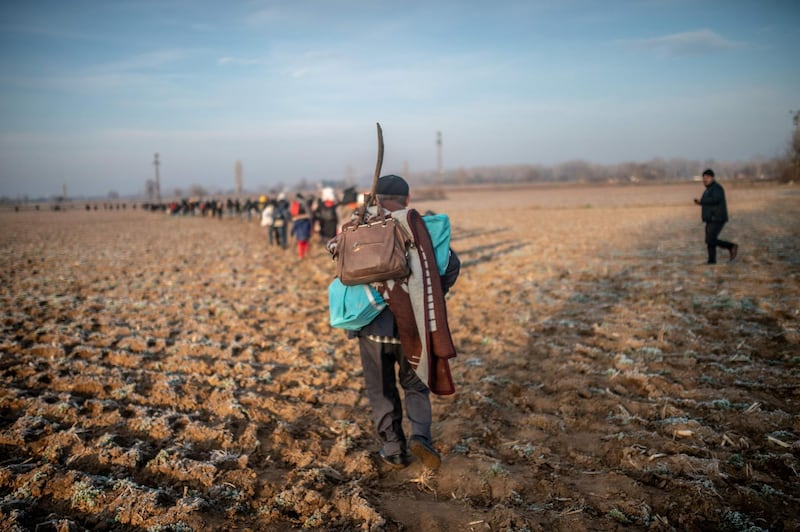The majority of displaced Syrians want to go home but unless conditions improve, few will risk returning to their war-torn country, a grassroots civil rights organisation says.
In a report released on July 21, the Syrian Association for Citizens' Dignity said the longer Syrians felt unable to return, the more likely they were to remain permanently displaced, jeopardising hopes for a lasting resolution to the nine-year conflict in their country.
Many are intent on returning one day, but according to the survey of 1,100 displaced Syrians, 73 per cent would return if the conditions were right and 80 per cent were adamant the security situation had to change for that to be possible.
The fate of at least nine million displaced Syrians who want to return is "instrumental to the sustainability of any future political solution to end the conflict and ensure lasting, stable peace", the report, titled We Are Syria, said.
When applied to the total number of displaced Syrians, about 13 million, this suggests that more than nine million people would exercise their right to a safe, voluntary and dignified return to their homes in Syria, the group said.
More than half of the country’s pre-war population has been displaced since 2011, but despite worsening conditions for many Syrians living in refugee camps and increasingly hostile host communities abroad, only a tiny fraction have trickled home in recent years.
"We risk seeing the displacement solidify and become permanent, which would have devastating consequences for millions of Syrians but also for the region and beyond, resulting in constant instability and cycles of violence," Haya Atassi, a spokeswoman for the group said.
"This is why there is such an urgent need for a comprehensive political solution that would guarantee rights to all displaced Syrians, with strong international guarantees," she told The National.
The research indicates that 97 per cent of displaced Syrians in Europe feel settled, in stark contrast to other host countries, including Lebanon and Turkey, where increasing hostility towards refugees "seen as easy scapegoats for internal political and economic problems" has compounded their sense of insecurity.
The changing political narrative in Turkey, which hosts the largest number of Syrians, led to a 34 per cent drop in the number of refugees who say they feel settled there.
In Lebanon, only 9 per cent of refugees feel settled, due to a combination of difficult living conditions and bureaucratic hurdles that make it extremely difficult to obtain legal status and receive access to education, work and health care.
“Life in Lebanon is very difficult ... people are beginning to lose their minds because of the abuse and humiliation,” Maher, 33, told researchers.
Khaled, 26, another Syrian interviewed in the survey, said he had to give up his university studies.
“In addition to security concerns, there is a high possibility that the Lebanese authorities will hand me over to the regime without any deterrence, simply because I work,” he said.
The dangers faced by the few who have been forced to return to areas held by President Bashar Al Assad's regime were documented in a report the civil rights group published this year.
In the latest study, security issues were the main concern for most participants, with 73 per cent citing the need to reform the security sector and curb its powers over civilian life.
Military conscription remains a major obstacle to return for many men aged between 18 and 42 and the fate of people detained in Syria was a priority for 64 per cent of the displaced.
At least 130,000 people are being held in the regime's prisons for political reasons, though some studies estimate the figure is double that.
Families of people missing in Syria's prison system speak of anguish, bribery and torture.
Some families only recently learnt of the death of loved ones after photographs of people tortured and killed in regime custody circulated on social media.
The Caesar Act: New US sanctions on Syria take effect

The introduction of the US's Caesar Act has led to the images that that inspired it being recirculated.
Despite several “amnesty decrees”, the detentions are ongoing, leaving many people fearful of reprisals if they do go back.
Fahd, 65, from the regime-controlled city of Latakia, said he lived a good life before the war but told researchers his family had suffered a lot since. H e now lives in Turkey and said he would never return to Syria under the Assad regime.
“I do not trust and I do not believe in partial solutions, false amnesty, or collateral international guarantees. There will be no peace or calm as long as the regime remains, even if only a small part of it," he said.
Syria's civil war, a decade of decay
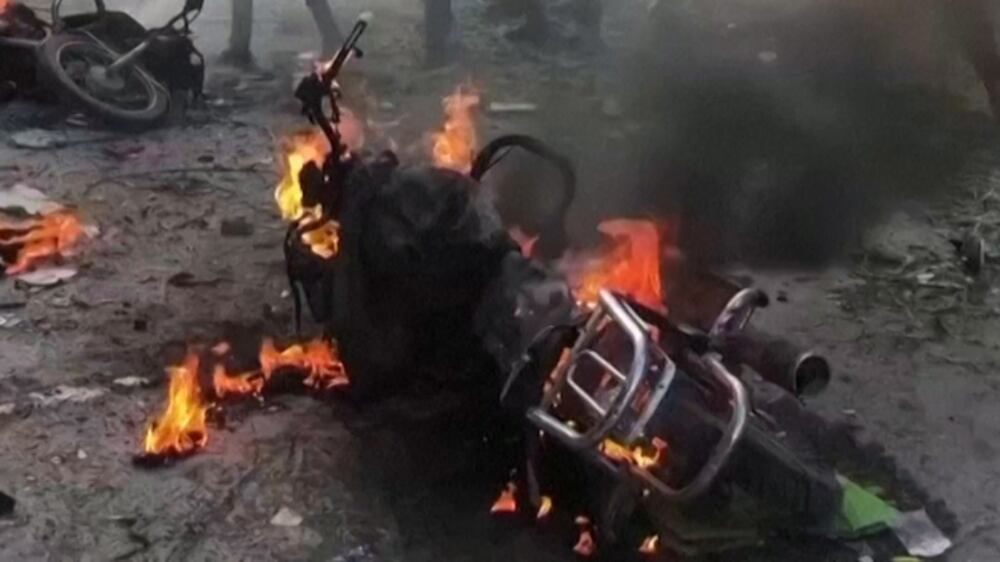
More than 81 per cent of those surveyed identified the “departure of the regime with all its key figures” as an essential condition for returning to Syria.
For those internally displaced in the country, a group that makes up about 50 per cent of the 13 million Syrians forced to leave their homes since 2011, conditions are becoming steadily worse.
The collapse of the economy has left many without basic services and fears are growing about the increase in the number of coronavirus cases in a country where the healthcare system has been shattered by the conflict.
Meanwhile, the displacement continues, with more than one million people forced to flee their homes during a three-month period at the beginning of 2020 owing to a regime offensive on rebel-held towns in Idlib and northern Aleppo.
Many of those who fled are now enduring dire conditions in makeshift camps on the Turkish border and depend on aid to survive. A decision taken this month by the UN Security Council to close one of two remaining crossing points for cross-border aid is likely to make their situation even worse, Ms Atassi said.
“This is bound to impact people’s desperation to leave, but even in such circumstances the vast majority does not want to go to regime-held areas, out of fear of repression and revenge,” she said.
Some Syrians say they will never go home. Among those enduring the harsh conditions of northern Aleppo's displacement camps, 14 per cent do not believe their requirements for a safe return will be met.
Others are too traumatised by the horrors they witnessed in Syria to consider going home.
“I do not want to return to the place where my husband was executed in front of my eyes, nor return to where my children and I were oppressed ... I can’t live there again,” said Zahra, 50, who fled her home in Aleppo for Turkey.
